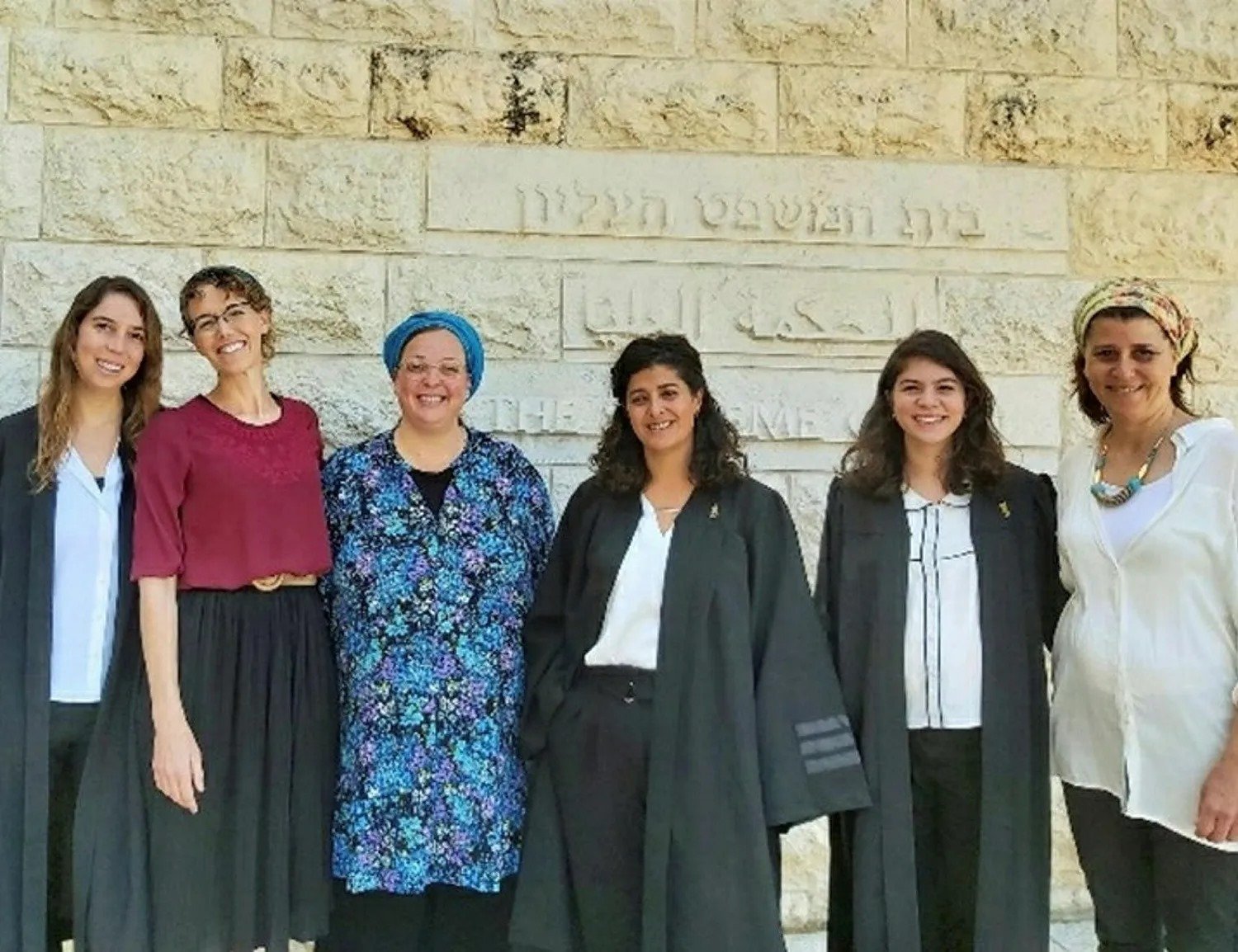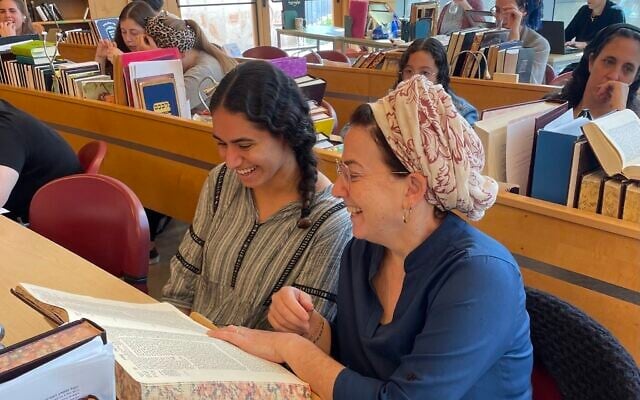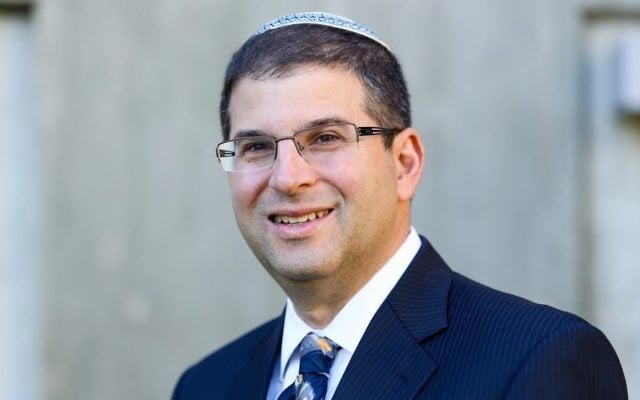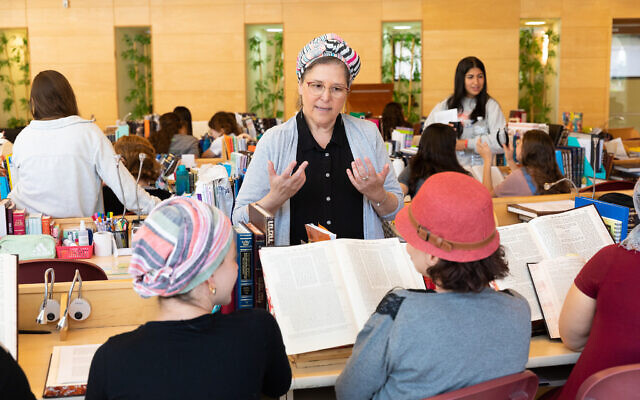



The Chief Rabbinate must open its rabbinical tests to women, the High Court of Justice stated in a groundbreaking ruling on Monday.
The ruling does not imply that women are entitled to be ordained as rabbis, nor was that requested by the petitioners. Still, its consequences are unprecedented in terms of advancing the status of female Torah scholars in Israel, as noted by Rabbi Seth Farber, head of the ITIM religious rights NGO.
ITIM presented the petition to the court in 2019 with two other women’s organizations, the Rackman Center for the Advancement of Women’s Status and the Kolech Religious Women Forum, and five women with advanced halachic (religious law) education, including Farber’s wife, Michelle Cohen Farber, a renowned Talmud scholar.
“This ruling is a huge deal because it is the first time that there is official state recognition of women’s Torah scholarship,” Farber told The Times of Israel over the phone.
“It does two things,” he explained. “First of all, there’s a symbolic issue. The State of Israel recognizes that the Rabbinate is subject to the laws and not able to discriminate against women. In addition, from the women’s Torah leadership and learning perspectives, it states that there is a clear path towards measuring what scholarship is, and that’s a huge deal, because until now, there has been a tendency to be very dismissive of women’s Torah scholarship.”
Other petitioners include Avital Engelberg, the director of the Israeli branch of the New York-based Orthodox Yeshivat Maharat, a Talmud teacher at the Israeli seminary Midreshet Ein HaNatziv, and the director of the Ein Hanatziv-Maharat Advanced Semikha (rabbinical ordination) in Israel. Shlomit Flint, who serves as a Talmud teacher at Midreshet Be’er’s Yerucham and Ashdod campuses also was a petitioner.

The Chief Rabbinate administers tests in the major areas of Jewish law, including kashrut, family purity laws, Shabbat, mourning, and marriage laws. Candidates who wish to be eligible to be recognized as rabbis need to pass a certain number of those tests (six are enough for the level of neighborhood rabbi, while the title of “city rabbi” requires 11 tests). However, the Rabbinate also grants other types of certificates to those who pass the tests, with important economic and social implications.
For example, the “Yoreh Yoreh” (“he may teach”) certificate – which is obtained after passing six tests – is, under certain conditions, considered equivalent to an academic degree in terms of salary benefits and is a prerequisite to access some public jobs.
“The ruling essentially says that the Rabbinate gives exams and those exams impart all sorts of rights to people, particularly economic benefits,” Farber said. “Because of that, not enabling women to take exams is outright discrimination.”
He noted that now women who pursue advanced Jewish studies at institutions such as Midreshet Lindenbaum or Nishmat, two of the most prominent Torah centers for women to study in Israel at an advanced level, will now be able to take the official exams, in addition to the private exams organized by the institutions.

Asked why the petitioners did not ask for women to be entitled to receive rabbinical ordination, Farber offered both a legal and a social argument.
“Semikha [rabbinical ordination] is a different jurisdiction of the Rabbinate, and the Rabbinate can decide what semikha is, so it’s not clear we would have won such an argument,” he explained. “It could also be that the jury is still out on exactly how that’s supposed to happen in this country.”
“This was a clear issue of inequality, so it’s a stronger legal case, and it’s not just more winnable, it’s also more right with the contemporary Jewish communities.”
In the ruling, Justice Ofer Grosskopf widely quoted Jewish sources, from the Torah to the Talmud, and Torah sages across history, highlighting women leadership roles and scholarship in Jewish tradition.
Grosskopf also noted how several attempts to administer tests equivalent to those organized by the Rabbinate under the responsibility of other governmental bodies, including the Labor Ministry and the Religious Affairs Ministry, failed.

That was one of the reasons that the Chief Rabbinate’s proposed solution to organize exams for women under a completely different system, while guaranteeing the same benefits, was not deemed credible and was rejected by the judges.
According to Farber, the implementation of the High Court ruling might take some time.
In the past, the Chief Rabbinate vehemently opposed the idea of opening its exams to women, with former Sephardic chief rabbi Yitzhak Yosef stating in 2018 that he would rather shut down the whole system than do that.
“I want to be optimistic and say that I expect the decision to be implemented by the set of exams that will take place after Rosh Hashanah [in October],” Farber said. “If it doesn’t, we will start legal proceedings.”
